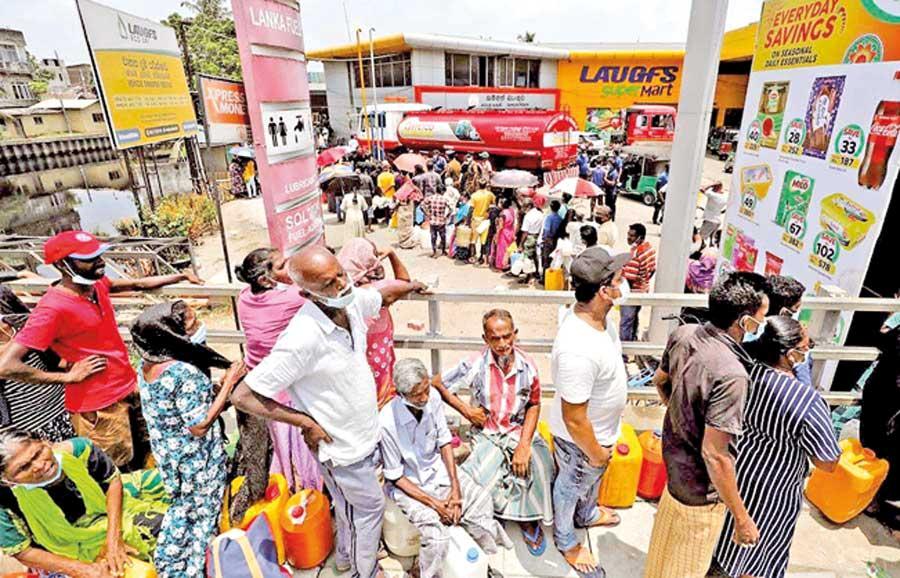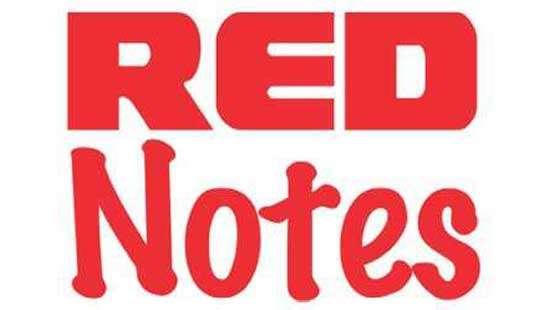Reply To:
Name - Reply Comment
Last Updated : 2024-04-25 09:17:00

Though lengthy queues for fuel, food and LP gas have disappeared lately, tough IMF conditions compel the common man to adopt strict austerity measures on every steps he takes
At the 2023 Annual Meetings of the World Bank and the International Monetary Fund (IMF) last week, there was considerable discussion about the deteriorating global economic situation and the debt crisis affecting developing countries. A major concern now are the consequences of IMF packages for developing countries in debt distress. How will IMF imposed austerity affect the social protection of people ravaged by economic crisis?
and the debt crisis affecting developing countries. A major concern now are the consequences of IMF packages for developing countries in debt distress. How will IMF imposed austerity affect the social protection of people ravaged by economic crisis?
I was part of a hybrid panel at a side event in Washington titled: “IMF’s strategy on social spending facing austerity: New direction or band-aid?” I provide below a write up based on my intervention.
Social welfare
Sri Lanka is going through its worst economic crisis since the 1930s; the time of the Great Depression. It is out of that earlier devastating crisis, including a malaria epidemic in 1935 that was worse than the Covid pandemic in costing the lives of 2% of our population, that free education and universal healthcare systems were built, and remain to this day. A universal food subsidy system was also created then, but that was made into a targeted cash transfer in the late 1970s with the IMF led Structural Adjustment policies, and eventually inflated away into insignificance. How much more resilient Sri Lanka would be today if that food subsidy had continued, to address the ongoing food crisis with malnutrition ravaging the country.
Sri Lanka has a history of strong universal welfare measures which have been a great boon to its people. Even though social welfare has been underfunded in recent decades, and median incomes are low with rising inequalities, the country managed to keep much of the population above poverty. In this context, the current crisis has been gruelling for working people; poverty levels have doubled to 25% and a third of the population is food insecure.
Austerity measures
Sri Lanka having defaulted on its external debt exactly a year ago in April 2022, turned to the IMF. In fact, over the last year, the island nation has stringently implemented IMF recommendations, as prior actions to ensure IMF Executive Board approval, which only came last month.
The austerity measures have been devastating; the sudden depreciation of the rupee with the attendant price hikes of 80% on imported goods passed onto consumers; the Central Bank policy rate increased two-and-a-half-times to 16.5% with effective lending rates of commercial banks on the order of 30%; policies of market pricing energy tripled petrol and diesel prices, kerosene used by fisher folk and small farmers quadrupled, and electricity costs on the average tripled; and the sudden halt of government projects drastically reduced incomes streams. Fuel consumption has halved with people not travelling, and the consumption of cement has halved undermining the livelihoods of the mass of day wage labour involved in construction. The consequence of such austerity measures is that the GDP contracted last year by 7.8%, and is expected to contract further by 4.3% this year.
Worrying restructuring
 Such social and economic devastation was to be balanced, the people were told, with the targeted social protection measures with cash transfers, as opposed to the universal social welfare measures they were entitled to for decades. However, the IMF report of March 20, 2023 released with its Executive Board approval recommends a mere 0.6% of GDP for social protection. The people will of course demand much more, because of the unaffordable costs of fuel, electricity and not to mention food; where food prices have doubled. Indeed, the cost of living has skyrocketed, as nominal wages have remained stagnant, and even declined for many people.
Such social and economic devastation was to be balanced, the people were told, with the targeted social protection measures with cash transfers, as opposed to the universal social welfare measures they were entitled to for decades. However, the IMF report of March 20, 2023 released with its Executive Board approval recommends a mere 0.6% of GDP for social protection. The people will of course demand much more, because of the unaffordable costs of fuel, electricity and not to mention food; where food prices have doubled. Indeed, the cost of living has skyrocketed, as nominal wages have remained stagnant, and even declined for many people.
Sri Lanka, however, is now caught in a trap, what I would characterise as an IMF trap. The IMF is imposing conditionalities on government policies into the future, even as it also plays the role of arbiter for restructuring the country’s external debt. In fact, the IMF is playing multiple restructuring roles in Sri Lanka today; it is arbitrating the restructuring of external debt to creditors; it is restructuring the fiscal space with impossible primary surplus targets; and it is restructuring the universal social welfare system claiming to promote a better system of social protection that is targeted and based on cash transfers.
Let’s look at the priorities of the IMF, its debt sustainability analysis calls for 4.5% of GDP per year in foreign debt servicing. That amounts to 30% of the proposed revenues targeted in future budgets. However, while it is pushing for cuts on many subsidies affecting a range of public services, its focus is on a few categories of social protection, where the allocations have hardly changed and are limited to a mere 0.6% of GDP or 4% of future budget allocations.
The meagre social protection allocation is a mockery of redistribution needed for relief to the people. Worse the austerity push is being used to undermine what remains of universal social welfare. Clearly, targeted measures will not work for an economy with 65% of the population part of the seasonal informal sector, and therefore no regular wages. Hence one season, the farmers fall into poverty, the next season fisher folk and so on. And that is why targeted social protection will certainly not work during a deep economic crisis that disrupts livelihoods.
Political response
The IMF agreement, the imposition of austerity, and the dispossession underway serves the interests of the wealthy in Sri Lanka and the financiers that form external creditors. The working people whose welfare is being cut and wages repressed, have no recourse but through a political response. Last year the people of Sri Lanka chased away a despised president, and are now confronted by an unelected authoritarian president.
An IMF package serving the interests of powerful creditors and the elite in Sri Lanka, taken forward by a regime without legitimacy, will eventually be opposed by the overwhelming majority of the citizenry. As the big lie about social protection unravels, the people will have no option at the next election but to reject the IMF agreement wholesale. Sadly, for now, deceived by the projection of an IMF solution, the Sri Lankan public are forced to endure painful years of austerity. The reality is a prolonged crisis, which can only be addressed by a different economic trajectory that rejects austerity, reinforces universal social welfare and rebuilds the livelihoods of working people.
Panel Organised by Global Coalition for Social Protection Floors, Chaired by Alex Campbell, Director, Washington Office, International Trade Union Congress. Panel: Rodrigo Cerda, Division Chief, Expenditure Policy Division, Fiscal Affairs Department, International Monetary Fund (IMF); Shahra Razavi, Director, Social Protection Department, International Labour Organization (ILO); Alexander Kentikelenis, on behalf of Oxfam International; Ahilan Kadirgamar, Senior Lecturer, University of Jaffna.

Add comment
Comments will be edited (grammar, spelling and slang) and authorized at the discretion of Daily Mirror online. The website also has the right not to publish selected comments.
Reply To:
Name - Reply Comment
US authorities are currently reviewing the manifest of every cargo aboard MV
On March 26, a couple arriving from Thailand was arrested with 88 live animal
According to villagers from Naula-Moragolla out of 105 families 80 can afford
Is the situation in Sri Lanka so grim that locals harbour hope that they coul